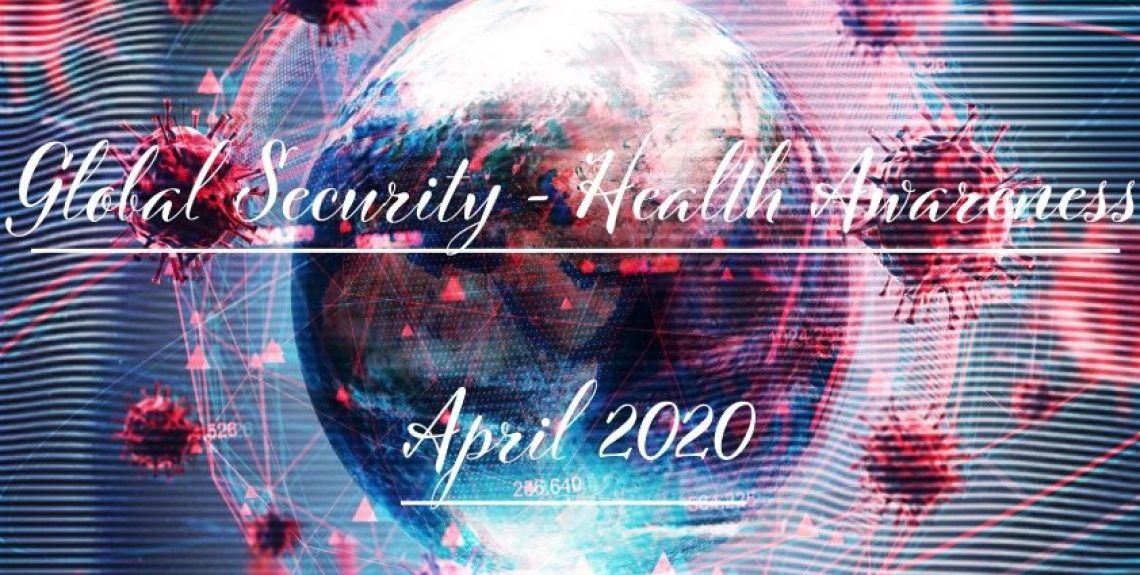NUMBER 1 – April 2020
International security does not refer anymore to military conflicts alone. The definition of international security has largely broadened and, already in NATO’s 2010 Strategic Concept, health risks were considered potential game changers for the Alliance member states and partners. This primer aims at explaining the links between the main global health developments and global security, stability and wellbeing.
————
#SouthAmerica
Source: “A major outbreak and a major collapse”: South America’s worrying coronavirus future, Alex Ward, Vox, April 22, 2020
https://bit.ly/2VTquWS
The limited amount of international travels and the prompt response by the majority of countries temporary averted the spread of Coronavirus in Latin America. However, the measures undertaken risk being thwarted by the lack of a common plan to: guarantee citizens basic needs, sustain regional economy, and to prevent populist ideologies. More than half of the population in Latin America depends on informal economy and lacks the support of tight social safety nets; now that domestic currencies are depreciated against the US dollar and prices of imported basic necessities products spiked, the survival of many is endangered and crime rates are increasing (offering new opportunities for powerful organised criminal groups). The virus hit regional economic systems that on the one hand never recovered since the latest financial crisis and on the other feature debt levels higher than in 2008. At present, the reduction of commodities exports and in absence of foreign investments are heading these countries towards a major collapse and probably one of the worst social and economic crisis of this century. Another factor to consider is the rising of populism in the continent following the rhetoric of Brazilian President Bolsonaro who has chosen not to implement nationwide lockdown despite the country alone counts half of the total cases and deaths in the whole region. Apparently this has happened due to a combination of special interests and a party incapable to assist him in policy shaping.
#EnergyMarket
Source: Oil slump wreaks havoc in Gulf markets, Saudi riyal under pressure, Davide Barbuscia, Hadeel Al Sayegh, Marc Jones, REUTERS, April 21, 2020
https://reut.rs/35cqvtq
Source: Oil Companies Are Collapsing, but Wind and Solar Energy Keep Growing, Ivan Penn, New York Times, April 7, 2020
https://nyti.ms/2xcpg0K
As a consequence of worldwide lockdown, for the first time in history, on Monday 20, US crude oil futures fell below $0 putting under pressure debts and equity markets in the Gulf countries, already hurt by the pandemic outbreak. Despite in the past weeks OPEC established an unprecedented cut for the next two months of 10 million barrels per day, to decrease to 8 million barrels per day by the beginning of January 2021 and to 6 million barrels per day till April 2022 (https://bit.ly/2KBhBw8), the market experienced a massive turmoil, mostly sentiment-based, but that could be a warning for troubles ahead. The collapse of the prices of oil also renewed fears for dollar pegs in the Gulf with Saudi Arabia, the world’s biggest oil exporter, being the most affected among the countries of the area. Nevertheless, Coronavirus represented a significant turning point in the energy markets as the drop in oil and gas usage corresponded to increased investments in renewable energy sources. In the first months of this year, renewable energies generated 21% of the electricity in the United States more than double compared to 2010. According to Fatih Birol, IEA Executive Director, renewable sources of energy fast forwarded 10 years eventually opening the path to a more sustainable future for all us (https://bit.ly/2VXA23f).
#NonStateActors
Source: Yesterday’s Terrorists Are Today’s Public Health Providers, Colin P. Clarke, Foreign Policy, April 8, 2020
https://bit.ly/3aIOLUR
In fragile countries terrorist groups, insurgents and criminal organisations are taking advantage of the pandemic providing the population with basic health needs and information over the virus. In Afghanistan the Taliban launched an awareness campaign to let people know how to deal with Coronavirus, using masks, gloves and washing their hands. They have also offered to NGOs and International Organisations a safe passage in the areas under their control to treat infected patients. The Afghan Government has even welcome the initiative, while Taliban fighters continue to attacks national forces in conflict zones. In Lebanon Hezbollah offered to the Government its support to overcome the crisis. In Syria militant groups distribute guidance from the WHO in the northwest territories controlled by the rebels. The same happens in the Brasilian favelas where criminal organisations and gangs are fulfilling people’s need for healthcare. The situation is exacerbating these groups rhetoric against Western allied governments incapacity to cope with this health emergency and is increasing their governmental legitimacy and support among the local populations.
Federica Lollo
Programme Manager at the NATO Defense College Foundation since 2016. She is specialising in Global Health and the impacts on international security. She is also attending the Mentoring Programme of Women In International Security Italy.






















